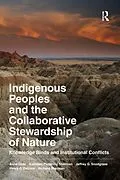Involving Indigenous peoples and traditional knowledge into natural resource management produces more equitable and successful outcomes. Unfortunately, argue Anne Ross and co-authors, even many "progressive" methods fail to produce truly equal partnerships. This book offers a comprehensive and global overview of the theoretical, methodological, and practical dimensions of co-management. The authors critically evaluate the range of management options that claim to have integrated Indigenous peoples and knowledge, and then outline an innovative, alternative model of co-management, the Indigenous Stewardship Model. They provide detailed case studies and concrete details for application in a variety of contexts. Broad in coverage and uniting robust theoretical insights with applied detail, this book is ideal for scholars and students as well as for professionals in resource management and policy.
Autorentext
Anne Ross, Kathleen Pickering Sherman, Jeffrey G Snodgrass, Henry D Delcore, Richard Sherman
Inhalt
Acknowledgments, Introduction: The Way Forward, 1. Indigenous and Scientific Knowledge, 2. Untangling the Historical Origins of Epistemological Conflict, 3. Barriers to Integrating Indigenous Knowledge into Natural Resource Management, 4. Exploring Obstacles in Action: Case Studies of Indigenous Knowledge and Protected-Areas Management, 5. Joint Management and Co-Management as Strategies for Indigenous Involvement in Protected-Areas Management, 6. The Indigenous Stewardship Model, 7. Conclusion, References, Index, About the Authors
